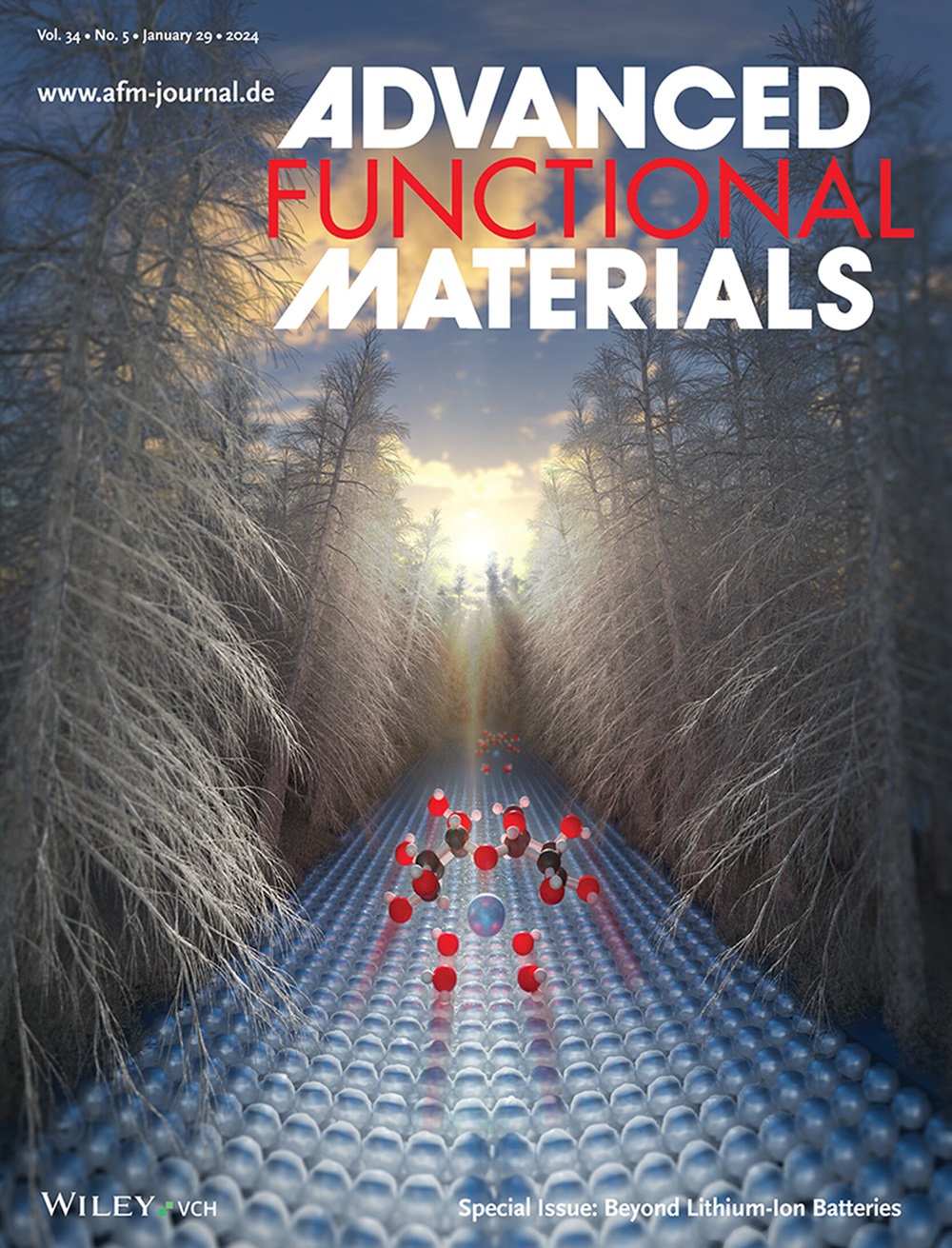Intensified Heterogeneous Growth of High‐Performance CHA Membranes from Hierarchical Zeolite T Seeds
IF 18.5
1区 材料科学
Q1 CHEMISTRY, MULTIDISCIPLINARY
引用次数: 0
Abstract
A new method for synthesizing high‐performance CHA zeolite membranes from 15 nm hierarchical zeolite T seeds using a small amount of gel is proposed. The growth of CHA membranes from T seeds is confirmed by X‐ray diffraction (XRD), scanning electron microscopy (SEM), transmission electron microscopy (TEM) and fast fourier transform (FFT) patterns. Raman spectroscopy, aluminum and silicon mass balance calculation, and thermodynamic stability investigation follow the contribution of OFF dissolution to CHA growth. It is proposed that the facile decomposition of hierarchical T seeds for localized hetero‐growth of CHA membrane is enabled by their hierarchical high surface area mesostructure. In addition, crucial for the CHA growth is the use of a deposited small amount of gel with high precursor concentration. The CHA membrane exhibits the best separation performance among the reported tubular hydrophilic membranes for ethanol dehydration, with a steady‐state water flux of 4.4 and 3.6 kg m分级沸石T种子制备高性能CHA膜的强化非均相生长研究
提出了一种以15nm级配T型沸石种子为原料,使用少量凝胶合成高性能CHA沸石膜的新方法。通过X射线衍射(XRD)、扫描电子显微镜(SEM)、透射电子显微镜(TEM)和快速傅里叶变换(FFT)图证实了T种子中CHA膜的生长。拉曼光谱,铝和硅的质量平衡计算和热力学稳定性研究是在OFF溶解对CHA生长的贡献之后进行的。本文提出,分层T种子易于分解,从而实现CHA膜的局部异质生长是由于其分层的高比表面积介结构。此外,对CHA生长至关重要的是使用沉积少量具有高前驱体浓度的凝胶。在已报道的管状亲水膜中,CHA膜的分离性能最好,在中性和pH≈4条件下,稳态水通量分别为4.4和3.6 kg m−2 h−1,运行154 h后,分离因子(S.F.)超过8,000。这项工作为沸石膜的种子生长提供了新的见解,在确保高性能的同时,实现了高前体利用率的新合成途径。
本文章由计算机程序翻译,如有差异,请以英文原文为准。
求助全文
约1分钟内获得全文
求助全文
来源期刊

Advanced Functional Materials
工程技术-材料科学:综合
CiteScore
29.50
自引率
4.20%
发文量
2086
审稿时长
2.1 months
期刊介绍:
Firmly established as a top-tier materials science journal, Advanced Functional Materials reports breakthrough research in all aspects of materials science, including nanotechnology, chemistry, physics, and biology every week.
Advanced Functional Materials is known for its rapid and fair peer review, quality content, and high impact, making it the first choice of the international materials science community.
 求助内容:
求助内容: 应助结果提醒方式:
应助结果提醒方式:


